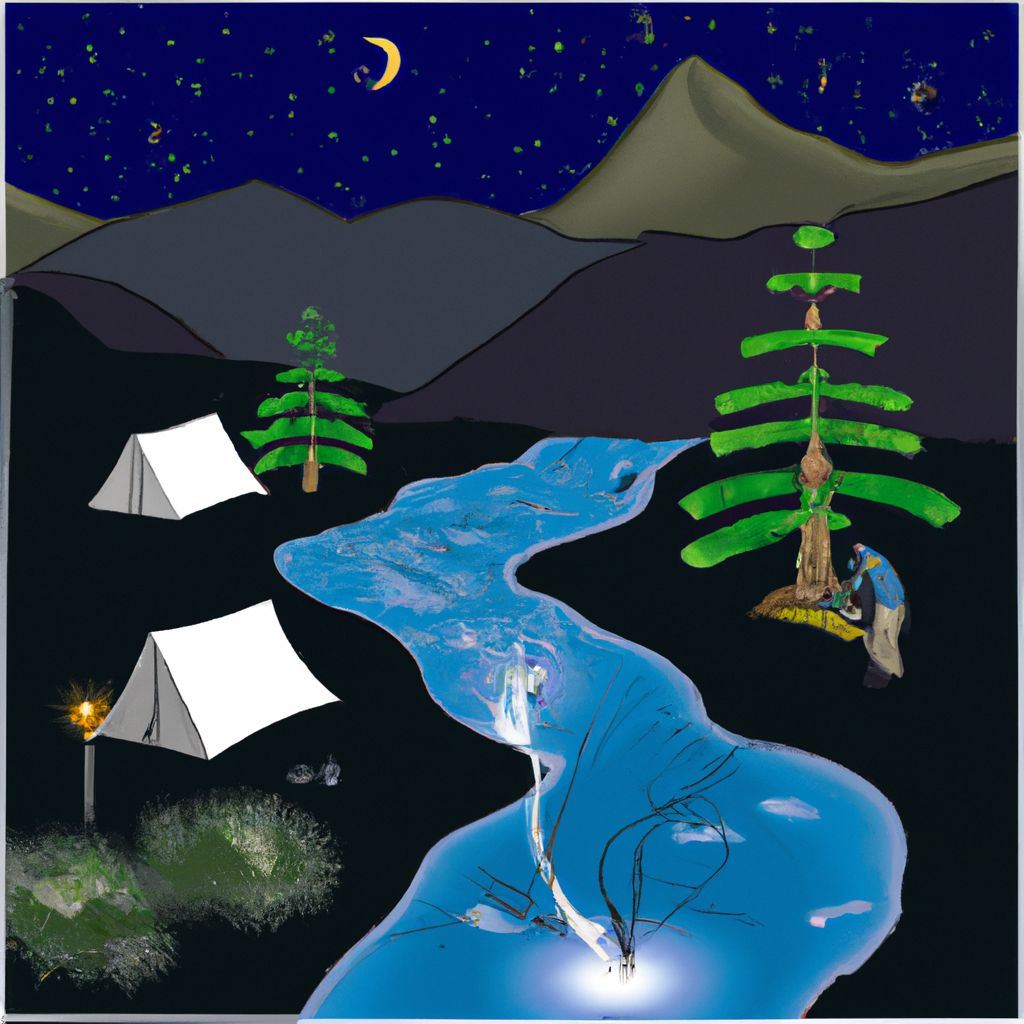- Introduction to Backcountry Camping
- Essential Gear for Backcountry Camping
- Planning Your Backcountry Camping Adventure
- Backcountry Camping Skills
- Safety in the Wilderness
- Amazing Backcountry Camping Destinations
- Personal Stories and Experiences
- Conclusion: The Rewards of Backcountry Camping
Introduction to Backcountry Camping
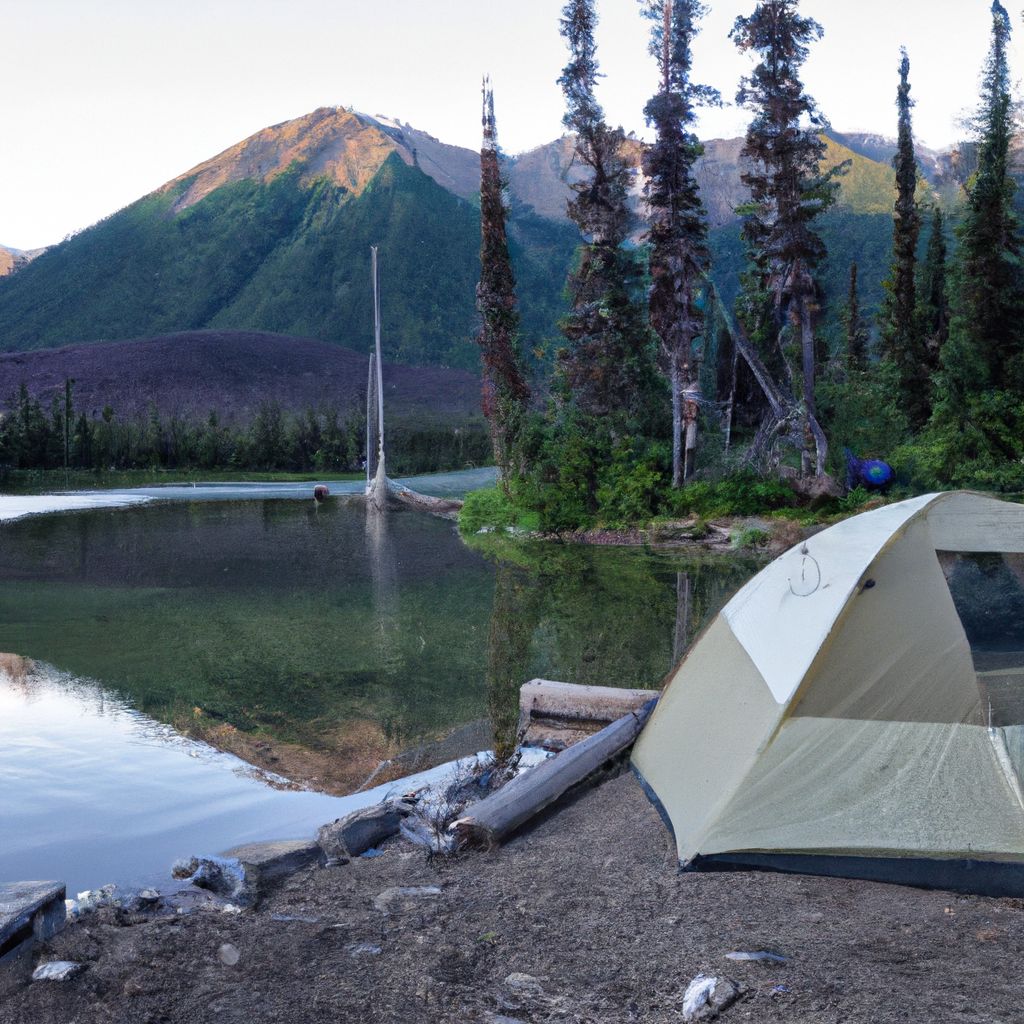
For the uninitiated, backcountry camping is a form of outdoor adventure where enthusiasts venture deep into the wilderness, far from the comfort and conveniences of established campgrounds. This form of camping, often referred to as 'wild camping', offers a unique opportunity for outdoor adventurers to connect more intimately with nature, enjoy solitude, and experience landscapes often unseen by the conventional camper.
Backcountry camping is distinguished from other forms of camping by its emphasis on self-reliance, survival skills, and minimal impact on the environment. It is typically done in remote locations, requiring campers to carry all necessary gear and supplies on their backs. Unlike camping in designated campsites, there are no amenities such as toilets, picnic tables, or fire rings. The wilderness is your campground, and you must adhere to the principles of Leave No Trace to preserve its beauty and integrity for future generations.
According to a report from the Outdoor Industry Association, over 7.5 million Americans participated in backcountry camping in 2018. This figure underlines the growing popularity of this adventurous outdoor activity, demonstrating a surge in the number of people seeking a more immersive and authentic connection with the outdoors.
But embarking on a backcountry camping adventure is not without its challenges. It requires careful planning, a good understanding of survival skills, and a profound respect for nature. In the following sections, we will delve deeper into what it takes to prepare for and embark on a backcountry camping adventure.
Essential Gear for Backcountry Camping
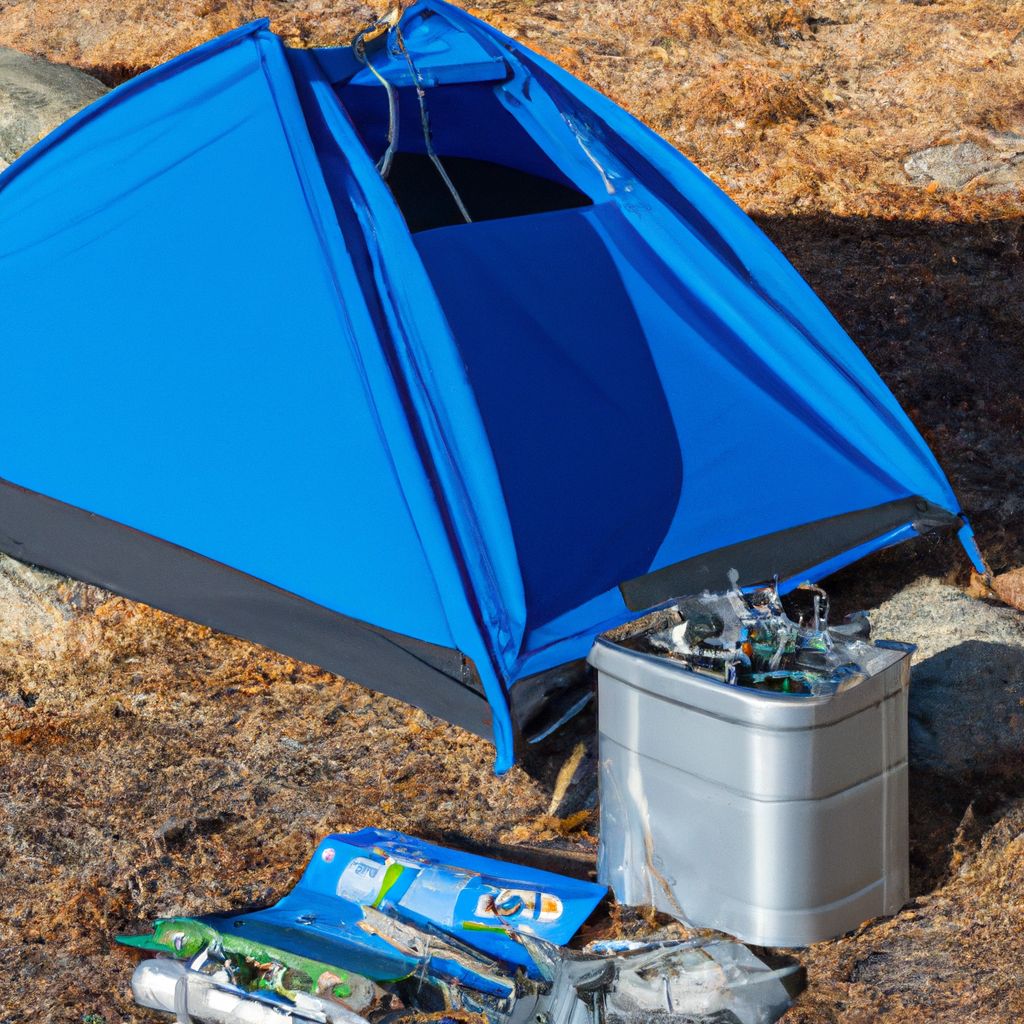
When embarking on a backcountry camping adventure, it's crucial to have the right gear. Your gear can make the difference between an enjoyable experience and a potentially dangerous situation. Below, we detail the essential equipment you'll need for a safe and comfortable backcountry camping experience.
- Tent: Shelter is one of the most critical elements of backcountry camping. You'll want a tent that's lightweight, durable, and easy to set up. The
MSR Hubba Hubba NXis a popular choice for its balance of weight and livability. - Sleeping Bag: A good night’s rest is crucial on the trail. When choosing a sleeping bag, consider the lowest temperature you'll encounter. The
Nemo Disco Insulated Down Sleeping Bagis a reliable option for three-season camping. - Cooking Equipment: A lightweight stove, fuel, and a cooking pot are the basics. The
Jetboil Flash Cooking Systemis a compact and efficient cooking system designed for backcountry camping. - Navigation Tools: Even if you plan to stick to established trails, it's essential to have navigational tools. A map, compass, and a GPS device like the
Garmin GPSMAP 64sxare invaluable tools. - First Aid Kit: A basic first aid kit should include items to treat cuts, blisters, burns, and other common outdoor injuries. The
Adventure Medical Kits Ultralightis a comprehensive yet compact option.
Remember, the key to backcountry camping gear is to balance weight with necessity. You want to be prepared, but you also need to be able to comfortably carry your gear over potentially long distances.
Always test new gear before hitting the trail. Familiarity with your equipment can increase efficiency and prevent mishaps when setting up camp in the wilderness.
Planning Your Backcountry Camping Adventure
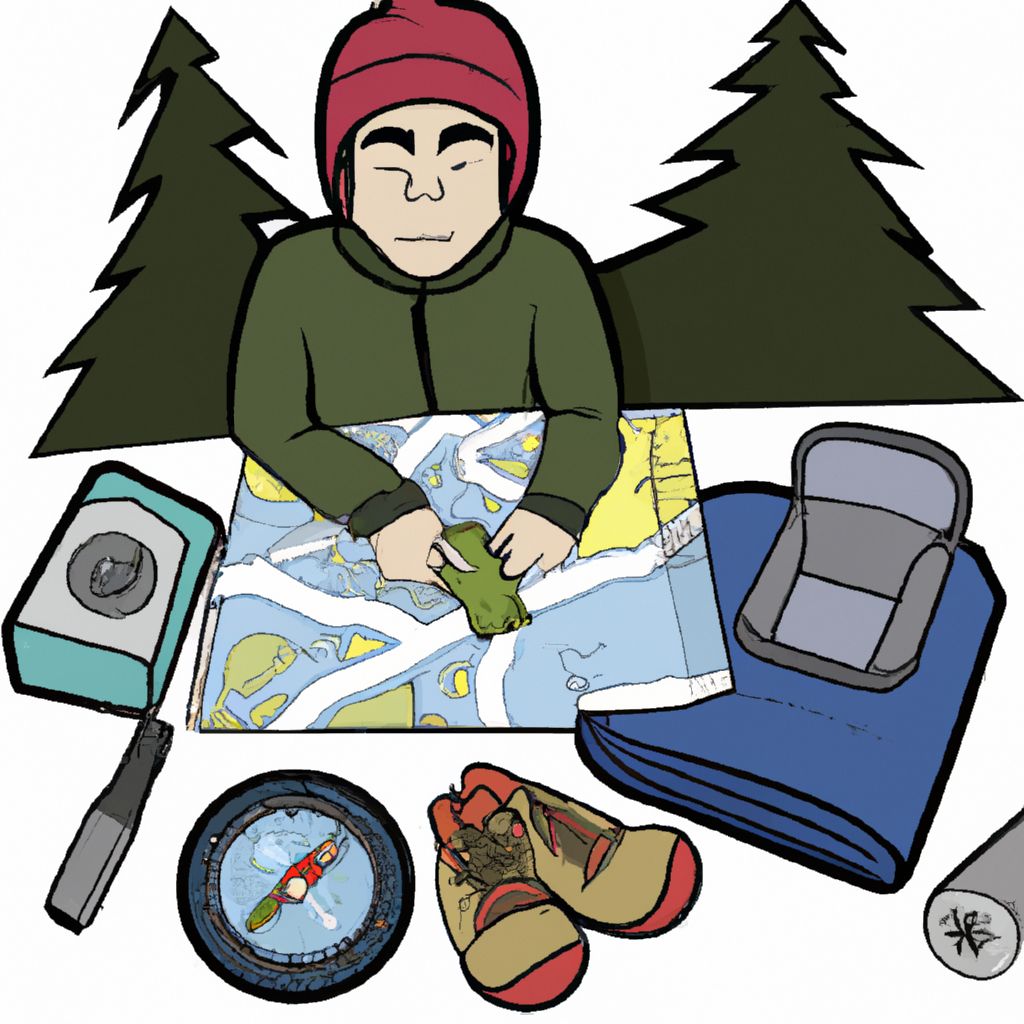
Planning is a crucial aspect of a successful backcountry camping trip. From choosing a location to understanding regulations, careful preparation can lead to a more enjoyable and safer experience. Here are some key factors to consider when planning your backcountry camping adventure.
- Choosing a Destination: The first step is choosing where you want to camp. Consider the difficulty level, distance, and the natural attractions you want to see. Research popular backcountry destinations and read trip reports to get an idea of what to expect.
- Mapping a Route: Once you've chosen a destination, plan your route. Use topographical maps and trail guides to understand the terrain. Websites such as
AllTrailsandTopoZonecan offer valuable resources in this regard. - Checking Weather Forecasts: Weather can change rapidly in the wilderness, so it's important to check the forecast for your destination and plan accordingly. Always pack gear for the worst-case scenario.
- Obtaining Necessary Permits: Many backcountry areas require permits for overnight camping. Check with the local land management agency to understand the rules and obtain necessary permits.
- Estimating Travel Time: Be realistic about how much ground you can cover each day. The National Outdoor Leadership School recommends planning to travel no more than 1.5 miles per hour.
- Planning Meals: Plan your meals based on the number of days you'll be camping. Opt for lightweight, high-calorie foods. Don't forget to pack a bear-resistant food storage container if you're in bear country.
Remember, the goal of backcountry camping is not just to reach your destination, but to enjoy the journey. Take time to soak in the beauty of the wilderness, and respect the natural environment by following Leave No Trace principles.
Good planning will ensure that your backcountry camping adventure is a memorable and safe experience. Now that you're equipped with the knowledge, it's time to pack your bags and hit the trail.
Backcountry Camping Skills
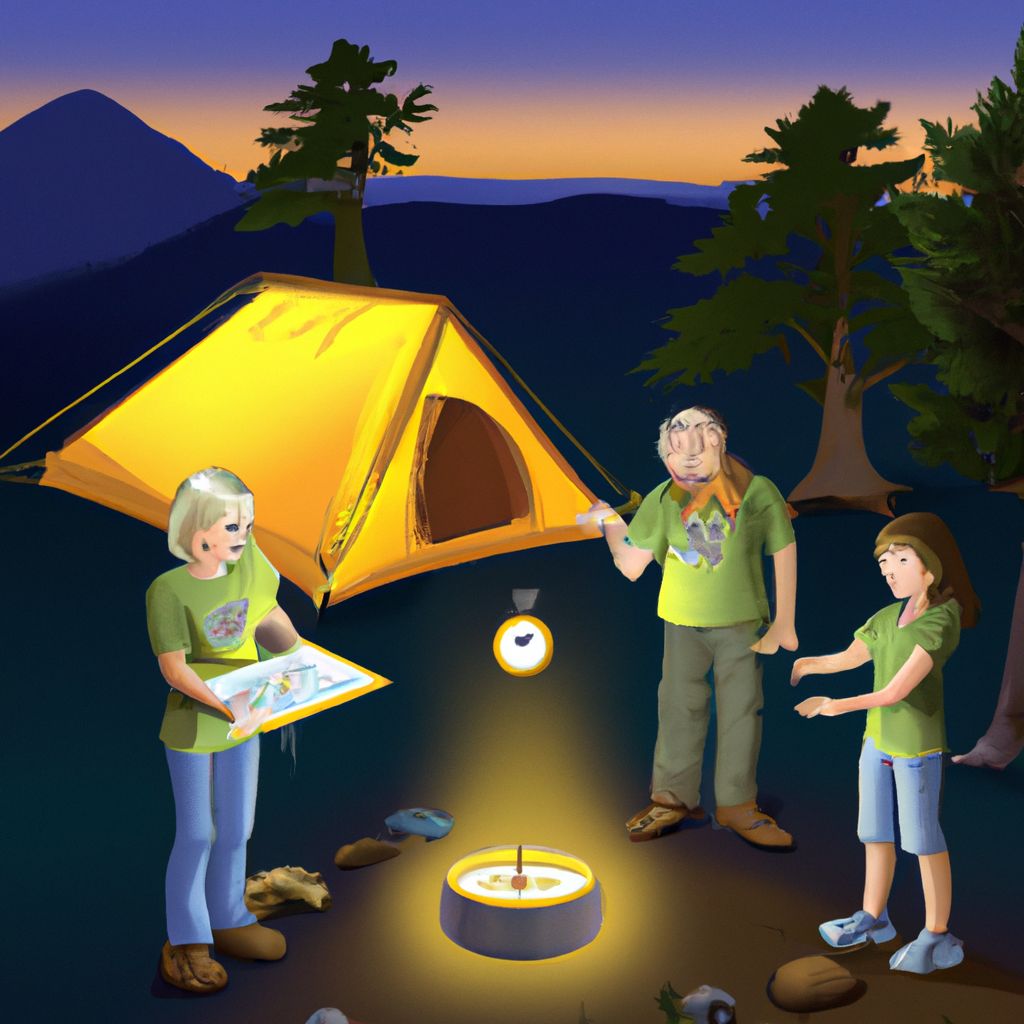
Backcountry camping demands a certain set of skills that you'll need to master before you head out into the wilderness. These skills will not only enhance your experience but also ensure your safety while camping in remote locations. Let's delve into the essential skills you need to develop for a successful backcountry camping adventure.
- Setting Up a Campsite: Knowing how to choose a good campsite and set up your tent is fundamental. Look for level ground, preferably elevated and sheltered from wind. Avoid camping near water sources, as they attract wildlife. Practice setting up your tent at home before you leave.
- Cooking on a Camp Stove: Backcountry cooking can be a challenge, especially after a long day of hiking. Familiarize yourself with your camp stove and practice cooking your planned meals before setting off.
- Navigating with Map and Compass: Even with a GPS, knowing how to use a map and compass is a crucial wilderness skill. Practice at home or consider taking a navigation course. The
American Hiking Societyprovides excellent resources to learn these skills. - Practicing Leave No Trace Principles: These seven principles are the gold standard for outdoor ethics. They include planning ahead, camping on durable surfaces, disposing of waste properly, leaving what you find, minimizing campfire impact, respecting wildlife, and being considerate of other visitors. You can learn more about these principles on the
Leave No Tracewebsite.
Of course, these are just the basics. The more time you spend in the backcountry, the more skills you'll develop. Wilderness First Aid, knot tying, and weather prediction are other valuable skills that can enhance your backcountry camping experiences.
As the saying goes, knowledge is power. The more you know, the more confident and prepared you'll feel on your backcountry camping adventure. So take the time to learn and practice these skills, and you'll be well on your way to becoming a proficient backcountry camper.
Safety in the Wilderness
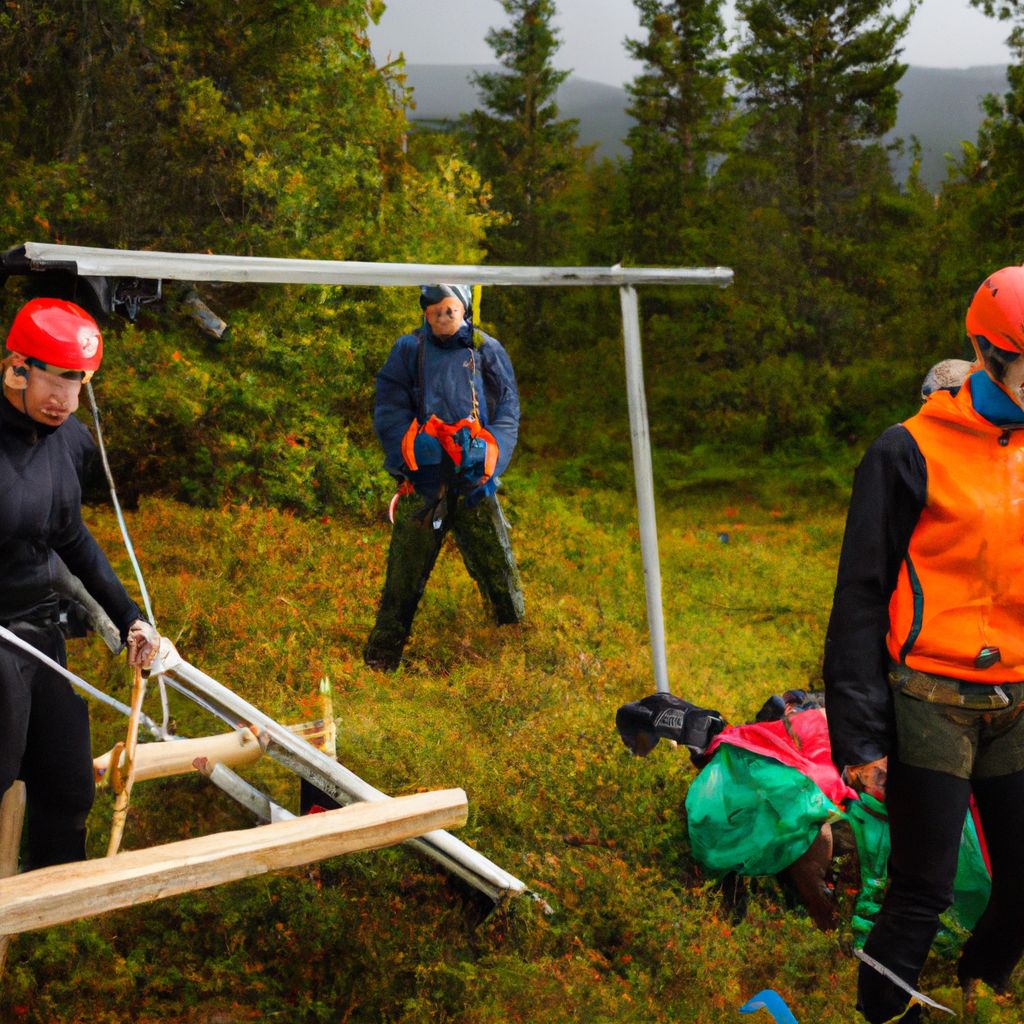
When it comes to backcountry camping, safety should be your top priority. The wilderness can be unpredictable, and understanding how to avoid common hazards and respond to emergencies is crucial. In this section, we will provide important safety tips for your backcountry camping adventure.
- Avoiding Common Hazards: Common hazards in the wilderness include adverse weather, difficult terrain, wild animals, and getting lost. Always check the weather forecast, understand the terrain you'll be navigating, store food properly to avoid attracting wildlife, and carry a map, compass, and GPS device.
- Responding to Emergencies: In case of an emergency, the most important thing is to stay calm and think clearly. If you're lost, remember the acronym
STOP: Stop, Think, Observe, and Plan. Always carry a first aid kit and know how to use it. Consider taking a Wilderness First Aid course. - Preparing for Unexpected Situations: Always inform someone of your travel plans before you leave. Carry a signaling device, such as a whistle or mirror, to signal for help if necessary. Pack extra food, water, and clothing in case your trip takes longer than expected.
It's also important to remember that safety in the wilderness is not just about being prepared for emergencies. It's about making smart decisions, understanding your limits, and respecting the power of nature. As the Wilderness Society notes, "The wilderness is a place of beauty and peace, but it can also be a place of danger and hardship. Respect it, and it will respect you."
With careful planning, the right skills, and a healthy dose of respect for the wilderness, you can ensure that your backcountry camping adventure is not only enjoyable but also safe. Remember, the best adventures are those that we return from safely, ready to embark on the next one.
Amazing Backcountry Camping Destinations
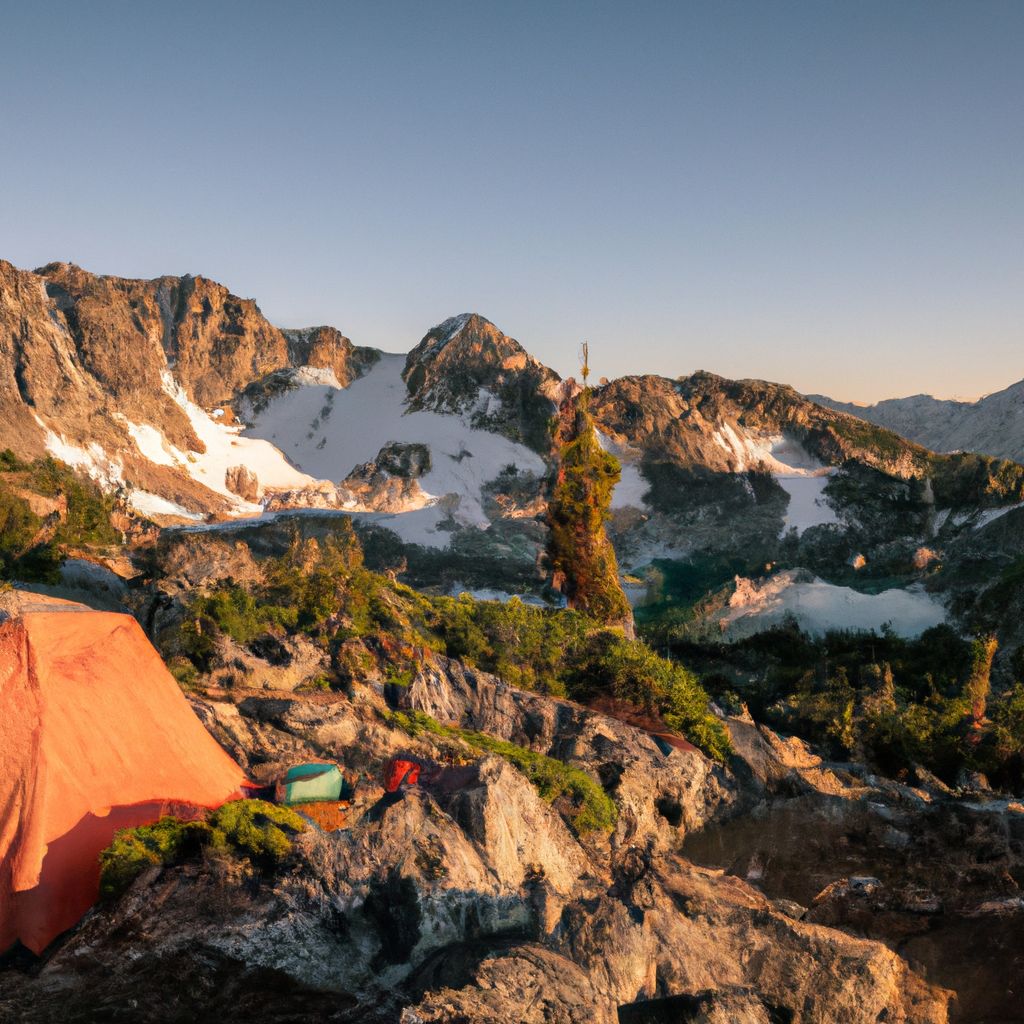
There are countless incredible backcountry camping destinations across the globe, each offering its unique allure. From the rugged mountain landscapes of the Rockies to the serene beauty of the Scandinavian wilderness, there's a backcountry camping adventure for everyone. Let's discover some popular and lesser-known destinations worth adding to your bucket list.
- The Wind River Range, Wyoming, USA: Known for its vast wilderness, alpine lakes, and towering peaks, the Wind River Range is a paradise for backcountry campers. With over 600 miles of trails and an elevation gain of up to 13,000 feet, it offers a true wilderness experience for the seasoned camper.
- West Coast Trail, British Columbia, Canada: This 47-mile trail along the southwestern edge of Vancouver Island is one of the most famous backcountry camping destinations in the world. Expect rugged coastal scenery, abundant wildlife, and challenging terrain.
- Sarek National Park, Sweden: Home to six of Sweden's thirteen highest mountains and nearly 100 glaciers, Sarek National Park is a lesser-known gem for backcountry camping. Be prepared for a real wilderness experience, as there are almost no marked trails or accommodations.
- The Overland Track, Tasmania, Australia: This 40-mile trail winds through the heart of the Tasmanian Wilderness World Heritage Area, offering a variety of landscapes, from rainforests and moorlands to alpine peaks. It's a challenging trek, but the stunning views are worth the effort.
- Torres del Paine Circuit, Chile: This circuit in Patagonia is a bucket-list destination for many backcountry campers. The challenging 80-mile trek offers breathtaking views of glaciers, mountains, and lakes.
These destinations offer a taste of the diverse and breathtaking landscapes that await the backcountry camper. But remember, no matter where you choose to venture, the key to a successful backcountry camping trip lies in careful preparation, respect for the natural environment, and a spirit of adventure.
As naturalist John Muir once said, "In every walk with nature, one receives far more than he seeks." So go forth, explore the wilderness, and discover the rewards of backcountry camping for yourself.
Personal Stories and Experiences
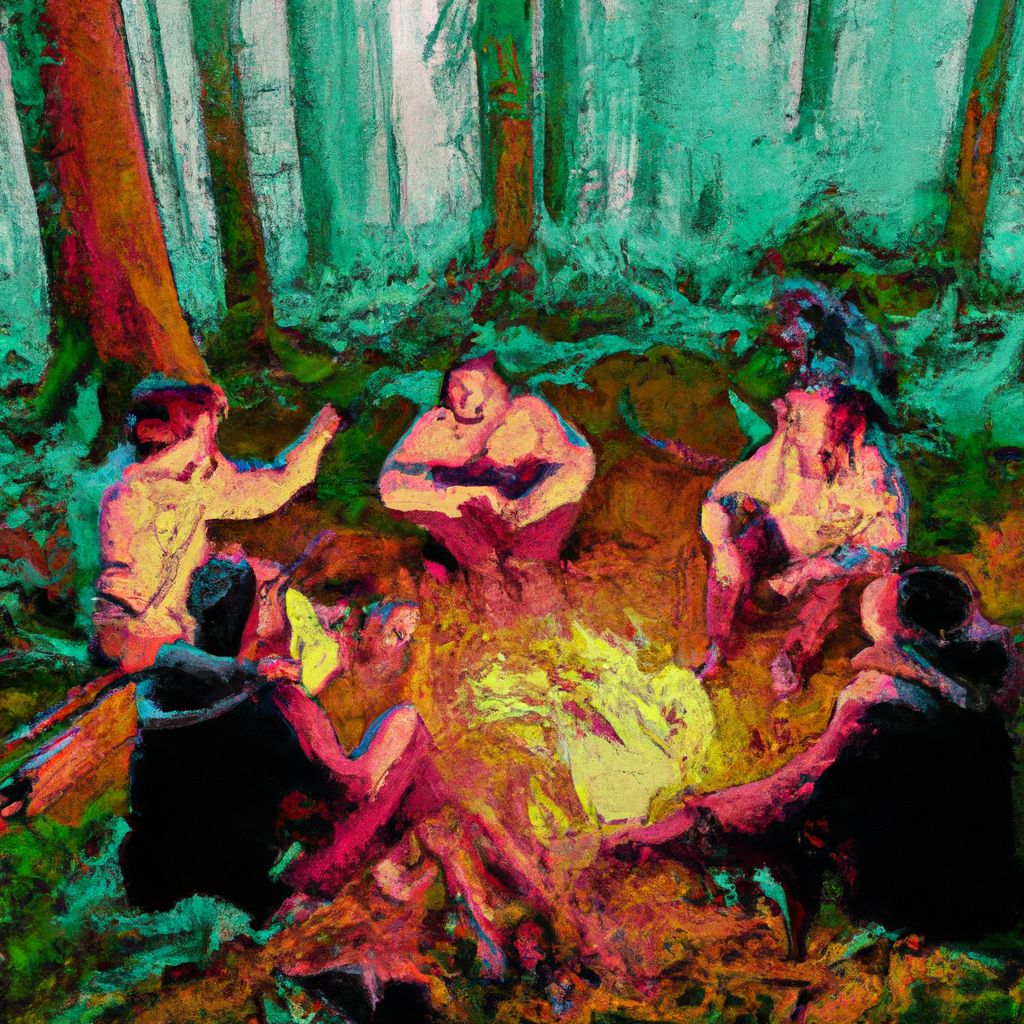
Backcountry camping adventures can create unforgettable memories and transformative experiences. They can challenge us, inspire us, and deepen our connection with the natural world. In this section, we'll share some personal stories from our own backcountry camping adventures, in the hope that they will inspire you to create your own.
The Wind River Range: One of our most memorable backcountry camping trips was in the Wind River Range in Wyoming. After a grueling hike, we set up camp beside a crystal-clear alpine lake, surrounded by towering granite peaks. As we cooked our dinner on our tiny camp stove, we watched as the setting sun painted the sky with hues of pink and orange. That night, under a blanket of stars, we truly understood the allure of backcountry camping. It was a moment of profound connection with nature, far from the distractions and comforts of modern life.
The Overland Track: On our journey along the Overland Track in Tasmania, we experienced the unpredictable nature of wilderness travel. A sudden snowstorm turned the trail into a winter wonderland, and we had to huddle in our tent for an unplanned rest day. But the next day, as we trekked through the freshly fallen snow, we were treated to a landscape transformed, with every leaf and branch glistening in the sunlight. It was a reminder of the challenges and unexpected rewards of backcountry camping.
Sarek National Park: In the vast wilderness of Sarek National Park in Sweden, we learned the importance of self-reliance and navigation skills. With almost no marked trails, we had to rely on our map and compass to find our way. It was a challenging and sometimes frustrating experience, but it also gave us a sense of accomplishment and confidence that few other experiences can match.
These personal experiences underline the joys and challenges of backcountry camping. They remind us that it's not just about reaching a destination, but about the journey itself, the lessons we learn, and the connection with nature we deepen along the way. We hope these stories inspire you to embark on your own backcountry camping adventure and create your own unforgettable memories.
Conclusion: The Rewards of Backcountry Camping
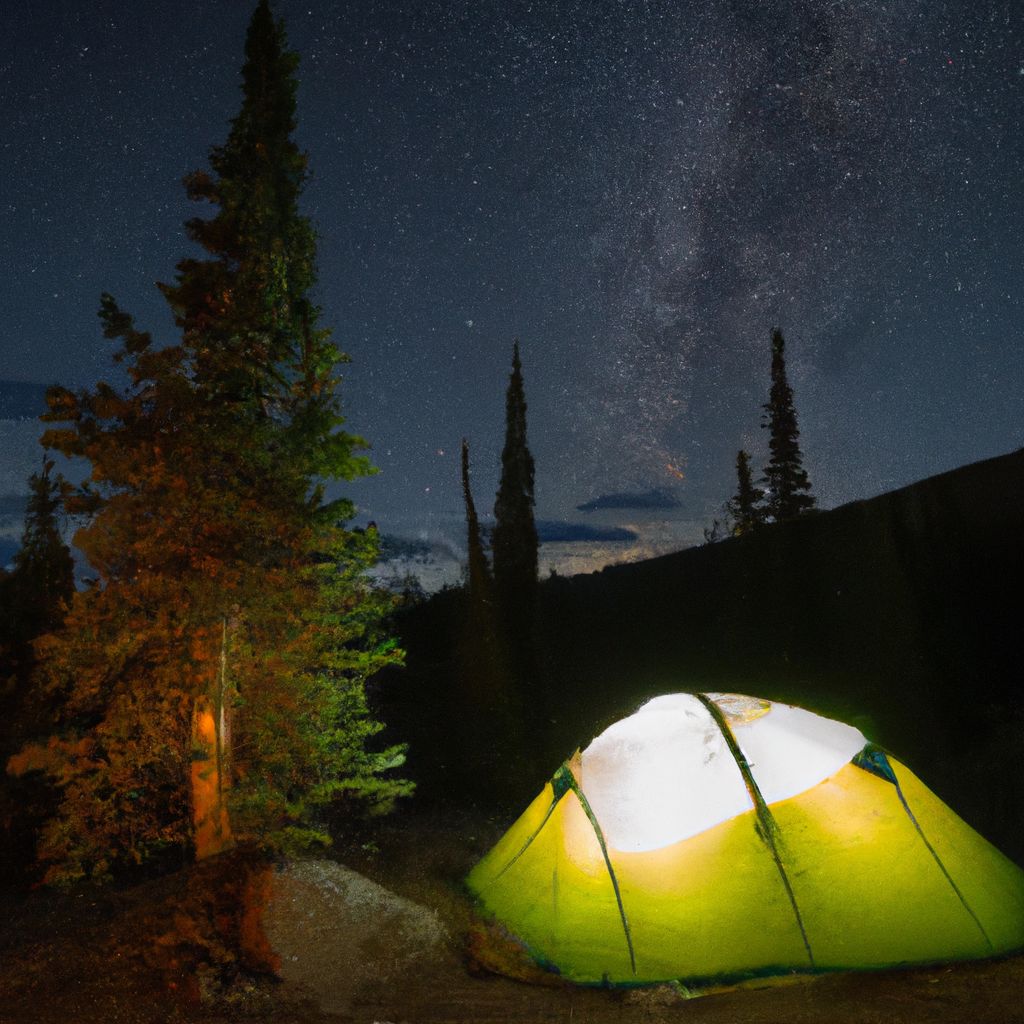
Backcountry camping offers rewards that extend far beyond the breathtaking views and unforgettable sunsets. It provides a unique sense of accomplishment, born from overcoming challenges and venturing beyond your comfort zone. It fosters a deep, intimate connection with nature, far removed from the distractions and demands of modern life. And it creates memories that last a lifetime, born from experiences shared and challenges overcome.
Whether it's the satisfaction of navigating a challenging trail, the joy of waking up to a chorus of birdsong, or the tranquility of a starlit night in the wilderness, the rewards of backcountry camping are as diverse as they are profound.
Of course, the true rewards of backcountry camping can't be fully conveyed in words. They must be experienced firsthand. So we encourage you, whether you're an experienced camper or a novice adventurer, to embark on a backcountry camping adventure. Equip yourself with the right gear, plan carefully, develop your wilderness skills, and choose a destination that calls to you. Then, go forth and experience the rewards of backcountry camping for yourself.
As the famous naturalist and writer Edward Abbey once said, "Wilderness is not a luxury but a necessity of the human spirit." So heed the call of the wilderness, embrace the adventure, and discover the transformative power of backcountry camping.


